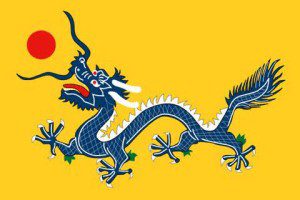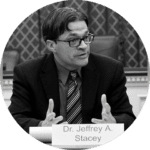 The so-called Pivot to Asia, or “rebalance” in official parlance, has been one of the Obama Administration’s signature strategic moves on the global chessboard. But for all the serious engagement of the Pacific Rim countries, the core of the pivot has always been about China and responding to its rise as a regional and proto global power. U.S. intentions aside, China has accused the U.S. of using the pivot as a form of neo-containment of itself. The containment of the Soviet Union during the Cold War ultimately proved to be a stabilizing strategic move by the U.S. and its western allies. Whether the pivot ends up bringing about a similar outcome in the Pacific Rim in essence constitutes the strategy’s ultimate test. Here are some additional questions:
The so-called Pivot to Asia, or “rebalance” in official parlance, has been one of the Obama Administration’s signature strategic moves on the global chessboard. But for all the serious engagement of the Pacific Rim countries, the core of the pivot has always been about China and responding to its rise as a regional and proto global power. U.S. intentions aside, China has accused the U.S. of using the pivot as a form of neo-containment of itself. The containment of the Soviet Union during the Cold War ultimately proved to be a stabilizing strategic move by the U.S. and its western allies. Whether the pivot ends up bringing about a similar outcome in the Pacific Rim in essence constitutes the strategy’s ultimate test. Here are some additional questions:
- Was the pivot necessary or did the U.S. have adequate resources and capabilities and allies already in place?
- Has the pivot been affordable in resource terms or have other priorities suffered as the pivot became a top priority?
- Has the pivot been communicated / executed with a single voice over time?
- Has the pivot been received as it has been intended?
- Have certain component parts of the pivot been more or less effective than others?
- Has the pivot overall had a moderating effect on U.S. allies in the region?
- Has the pivot had a moderating effect on China? In China have moderate or more hard line officials/officers been strengthened by the pivot?
- Has the pivot engendered any dynamics of a security dilemma between the U.S. and China?
- Has a familiar Cold War frame been inappropriately applied to China by U.S. elites?
- Has the pivot caused the region as a whole to be more secure or less secure?
Dr. Jeffrey A. Stacey is currently Managing Partner of Geopolicity USA, an overseas development firm. Formerly he was Senior Fellow at the Center for Transatlantic Relations at SAIS, before which he served in the Obama Administration as a State Department official specializing in NATO and EU relations at the Bureau for Conflict Stabilization Operations. At State he founded and managed the International Stabilization and Peacebuilding Initiative (ISPI), which has over 20 government and international organization partners.
Dr. Stacey is the author of "Integrating Europe" by Oxford University Press and is currently working on a follow-up book entitled "End of the West, Rise of the East?" He has been a guest blogger at The Washington Note and Democracy Arsenal, a professor of U.S. foreign policy at Tulane University and Fordham University, a consultant at the Open Society Institute and the U.S. Institute of Peace, and a visiting scholar at George Washington, Georgetown, and the University of California. He received his PhD from Columbia University.


0 Comments